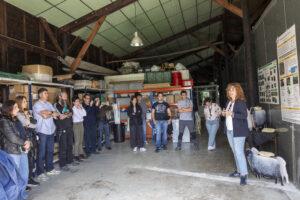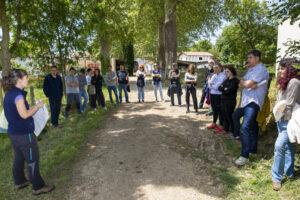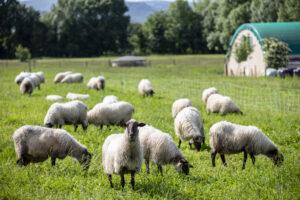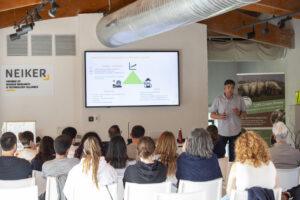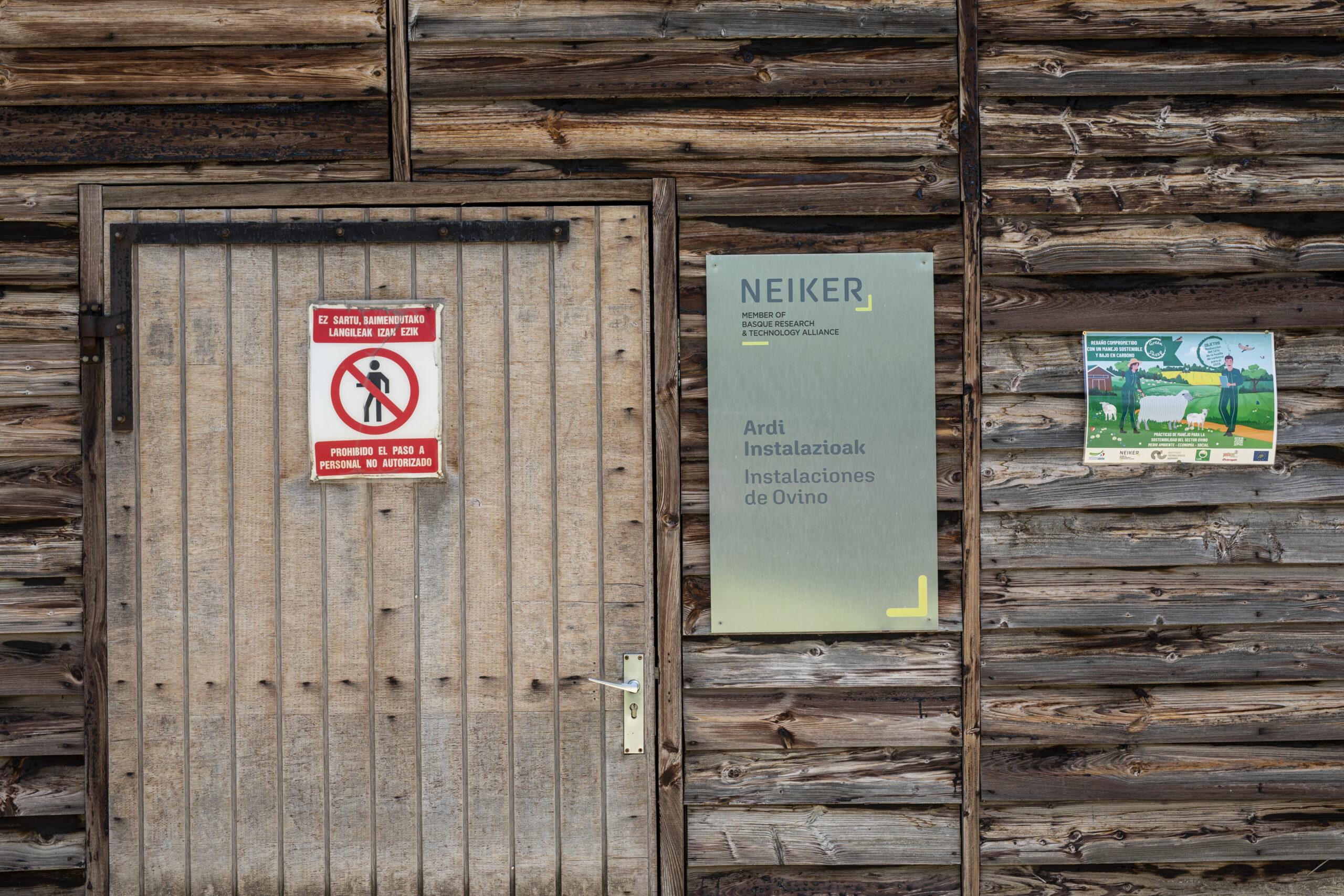Greenhouse gas emissions mainly stem from the consumption of fossil fuels. Therefore, practically all human activities have an impact on climate change. In the case of livestock farming, greenhouse gases such as methane and carbon dioxide are mainly produced during the digestive process of ruminants. However, in addition to producing food, this type of farming also generates positive environmental impacts, as proper livestock and pasture management can help mitigate climate change by improving soil health and fertility and increasing its carbon storage capacity. It is therefore increasingly necessary to implement practices that reduce environmental impact without compromising the production of high-quality food or animal welfare.
In this context, NEIKER, the Basque Institute of Agricultural Research and Development, which depends on the Department of Food, Rural Development, Agriculture and Fisheries of the Basque Government, held an open day on 27 May 2025 at its facilities in Arkaute (Álava). The objective was to present the results of its Low-Carbon Action Plan, developed with its own flock as part of the European LIFE GREEN SHEEP project. This initiative aims to promote sustainability in sheep production by improving efficiency, productivity, competitiveness, and reducing greenhouse gas emissions through the implementation of more environmentally friendly practices.
The session, aimed at farmers, technicians, and other stakeholders in the Latxa sheep sector, provided an opportunity to learn first-hand about the practices being applied to the flock, as well as the results obtained so far.
An expected mitigation of 17% GHG emissions
The day began with a presentation by Roberto Ruiz, head of NEIKER’s Animal Production Department, who provided an overview of the LIFE GREEN SHEEP project and explained the details of the Low-Carbon Action Plan applied to the Arkaute flock. “This plan starts with an assessment of the environmental impact of current management practices, with the aim of identifying and implementing alternatives that can reduce greenhouse gas emissions without affecting productivity. Although the initial target was to reduce the carbon footprint by at least 12%, current estimates point to a reduction of 17%,” explained the researcher.
Following this introduction, participants toured the centre’s facilities, where they were able to see first-hand how these measures are being applied, guided by the research team of the Animal Production Department.
Practical implementation in the field
During the visit, Lourdes Mintegi presented the characteristics of NEIKER’s flock, its general management, and production data, while Ina Beltrán de Heredia focused on practices to optimise reproduction. For her part, Idoia Goiri showed the facilities and equipment used to measure enteric methane emissions, such as sniffer sensors, a portable laser, and respiration chambers, which allow the collection of useful data to assess the effect of implemented practices on gas emissions. She also presented the results obtained from various trials with anti-methanogenic additives that can be incorporated into animal feed to reduce methane production during digestion.
Next, Nerea Mandaluniz shared their experience with rotational grazing, a practice employed at NEIKER since 2013. “We divide the pastures into different plots so that the flock rotates among them, allowing the grass to rest, recover, and maintain its regenerative capacity while reducing the need for fertilisers and other inputs,” noted the researcher.
Finally, Roberto Ruiz explained the use of an oilseed cake press, a system that allows the cold pressing of seeds such as rapeseed, sunflower, or linseed. This technology facilitates the replacement of imported soybean or palm oil, commonly used in feed formulation, with local raw materials. In this way, it contributes to reducing emissions associated with transport and the use of foreign ingredients, which are sometimes linked to deforestation and therefore have significant environmental and social impacts in their countries of origin.
